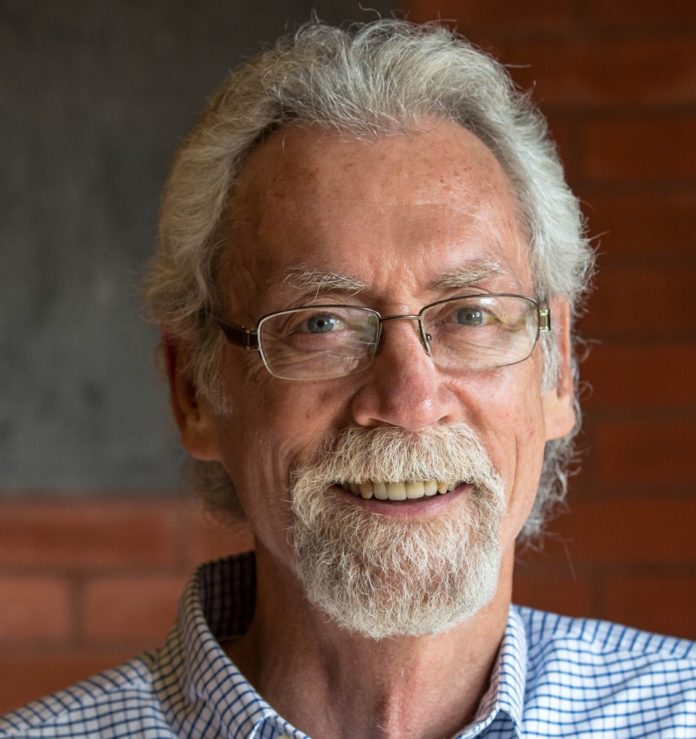BLM. COVID-19. Climate Crisis. If you think about it, these crises all share a few common characteristics – each represents an existential threat to mankind. Each disproportionately impacts low-income communities and communities of color. Each demands urgent attention that makes “business as usual” not an option. Each needs education and mutual cooperation to solve complicated issues. So how are we at SRU handling these issues, and what should our next steps be?
First, I’m pleased to see that support of the Black Lives Matter movement has expanded our Diversity & Inclusion programs to more comprehensively address the social justice/racial discrimination issues currently dividing America. Provost Abbey Zink deserves much credit for leading the way by advocating for increasing D&I staffing and programs; requiring all staff and faculty to participate in D&I training; developing a general education graduation requirement for diversity courses; pushing to add diversity components within all SRU departments; and for developing diversity labels for the Banner catalog of courses that make such courses easy to find. Respect all, and listen before making any assumptions!
Secondly, we’ve been faced with immense challenges arising from the pandemic one (very long) year ago, and SRU has done a great job in addressing this crisis. Kudos to all those involved – from President Behre, to our Facilities and Emergency Management staff, to our faculty – for keeping pace with the science and CDC guidelines, for making our campus safer, and for communicating effectively and transparently with our community. Keep wearing your masks and avoiding crowded indoor events!
But, as Bill Gates says, “Climate change is like the pandemic, except it could be irreversible and won’t be solved by a vaccination shot”.
While SRU has done very well in reducing our greenhouse gas emissions aimed at achieving zero net GHG emissions by or before 2037, NOW is the time to really “up our game” in addressing this imminent threat, by far the biggest physical, health, and economic crisis of our lifetimes. Unfortunately, the global response to the climate crisis has long suffered from the common misconception that it’s a distant, “future” problem rather than an urgent, immediate one.
No longer. The world’s youth are now faced with a huge threat that must be solved in a very short time span before climate change does, in fact, become irreversible and ruin the quality of life for themselves and future generations. We need an informed citizenry who understands the societal changes that have to be made, and can work together effectively and collaboratively to address this threat in a timely manner.
The Earth continues to warm up – mostly due to greenhouse gas emissions created by burning fossil fuels and to our industrial agriculture practices that not only contribute to GHG emissions, but are also ruining the very soil upon which we depend to feed ourselves. We’ve been observing increasingly more frequent and violent global warming impacts – extreme heat waves, droughts, raging wildfires, hurricanes, flooding, food and water shortages causing climate refugees, political turmoil, and more. Scientists have been predicting all of this for decades; what’s scary is that they were too conservative in their projections, and we’re now observing, with our own eyes, that the adverse impacts predicted are now happening much faster than anticipated.
We can no longer question the science, and we can no longer kick the can down the road. The time to act is NOW.
According to the President’s Commission on Sustainability, “Slippery Rock University is committed to being at the forefront of preparing the next generation of thinkers, innovators and entrepreneurs to help the world meet its profound environmental challenges.” We’ve made great strides in recent years (see www.sru.edu/sustainability for a detailed listing of our accomplishments). Key milestones in this fight for the planet included the signing of the President’s Climate Commitment (2009); formation of the President’s Commission on Sustainability (2010); the sustainability road map laid out in the global trends-based SRU Strategic Plan 2025 (2011); creation of our Climate Action Plan to achieve carbon neutrality (2012); and the creation of the Office of Sustainability (2012). We’ve been meeting our interim greenhouse gas emissions reduction goals, but NOW is the time to make the big push to carry us past the goal line as soon as possible. Recent activities taking us toward that goal:
- Dr. Julie Snow, GGE Department climate scientist, started up and now chairs the PASSHE chancellor’s Sustainable Development Task Force, in which all 14 state schools are now sharing best practices and helping each other boost our sustainability practices to reduce operating costs while also cutting greenhouse gas emissions.
- SRU has received pro bono Carbon Neutrality Planning services from consulting engineering firm Ever-Green Energy, and we also won a West Penn Power Sustainable Energy Fund grant to cover our matching costs (including paying for three student interns to help collect data for the project). The planning services will include evaluating options to (finally) eliminate the use of fossil fuels in our central heating plant, to obtain all our purchased electricity from 100% renewable energy sources, and much more.
- SRU also received an EPA grant to fund a two-year internship program, teaching our students how to conduct energy and water conservation audits and reduce pollution from food and beverage manufacturers in our region – good-paying internships and real workforce training for those interested in a career providing sustainability consulting to manufacturers. This grant was also supported by a private grant from Scott Electric Company to cover our matching costs for the EPA grant.
Next steps we should strive for:
- Follow the lead provided by the Provost’s diversity actions to quickly ramp up our sustainability education to get students ready to face this uncertain future:
- Require that all SRU graduates take at least one introductory course on sustainability and the climate crisis, preferably in their freshman year.
- Add sustainability components to all department courses.
- Add sustainability labels to the Banner catalog of courses to make them easier to find.
- Provide continuity to the Office of Sustainability by creating a succession plan for future leaders and adding staff to promote sustainable life style behavior change, helping develop new sustainability curricular and co-curricular programs, and increasing our student/community outreach programs.
- Add our environmental/climate science expertise to help on D&I initiatives designed to improve air and water quality in underserved communities via integrated community resilience planning efforts.
- Bolster our messaging and marketing of SRU as a LEADER in sustainability to help boost enrollment and create more sustainability influencers and game-changers – according to the 2021 Princeton Review “A majority, 75%, of those surveyed (vs 66% in 2020) said having information about a college’s commitment to the environment would contribute to their decision to apply to or attend the school. Among the 75%, 36% indicated such information would contribute “Strongly” or “Very much” to their decision about a college”.
Today’s students will be the first generation to face these unprecedented, cataclysmic climate challenges. As adults, you’ll be the decision-makers figuring out how to handle climate-related disasters on a scale we’ve never seen before. We don’t have all the answers, but we know that educating a group of superior thinkers, innovative problem solvers who understand the science, and we’re hopeful that the tremendous amount of research and development by government agencies and private industry alike will help us, together, solve the problem. The global community has used education, science and mutual cooperation to solve major challenges before – like closing the atmospheric ozone hole of 40 years ago. We can do it again as we face the climate crisis.
Just as we’ve used education, science and strong messaging by SRU’s leaders to fight the spread of Covid–19 on campus, we can do the same to speed up our response to the climate crisis!
April is Earth Month – Check out the Earth Month Master Calendar of Events at www.sru.edu/sustainability and learn how to become part of the solution.








